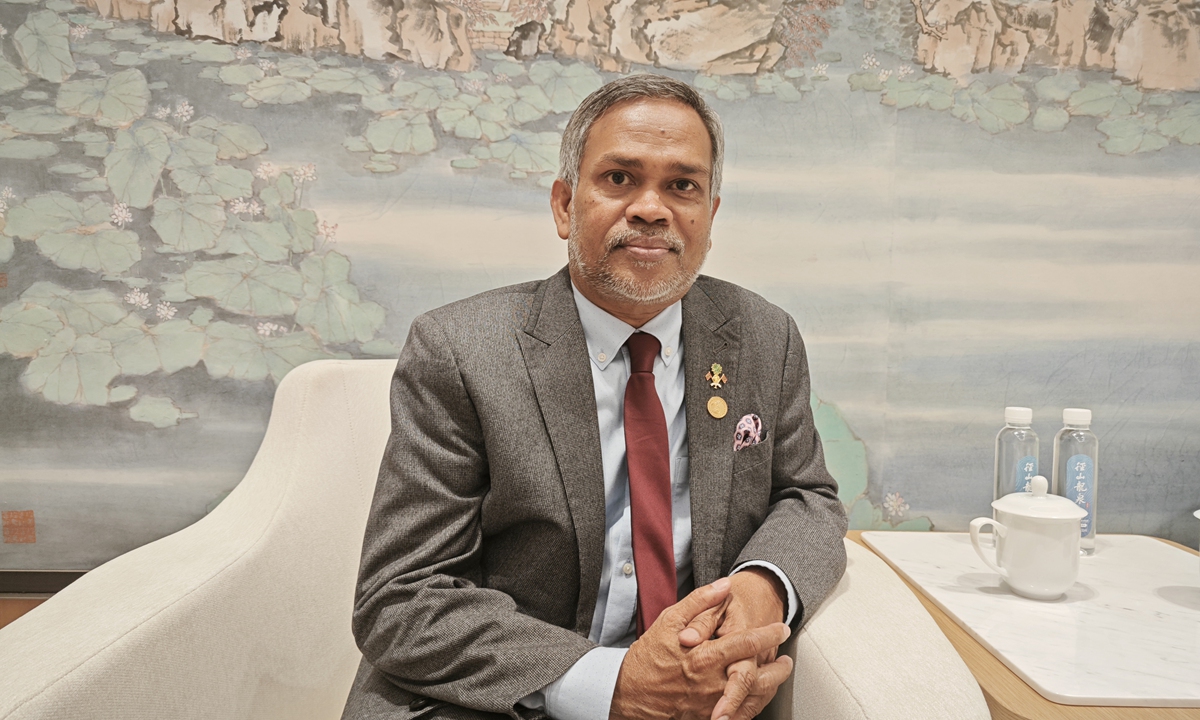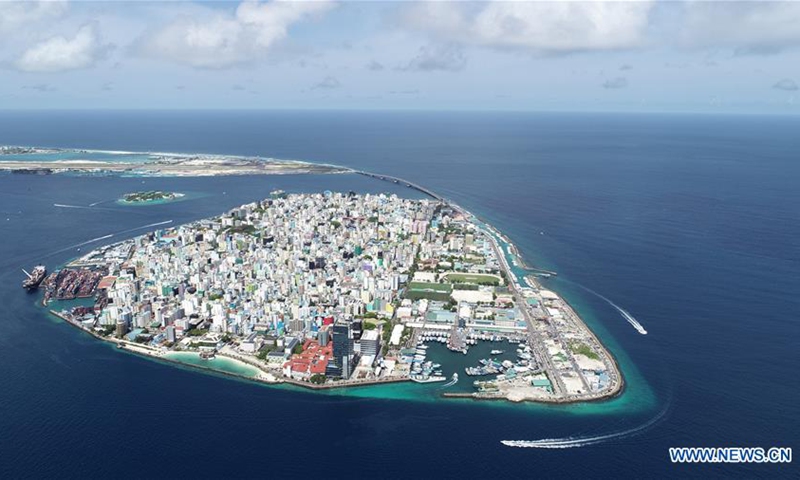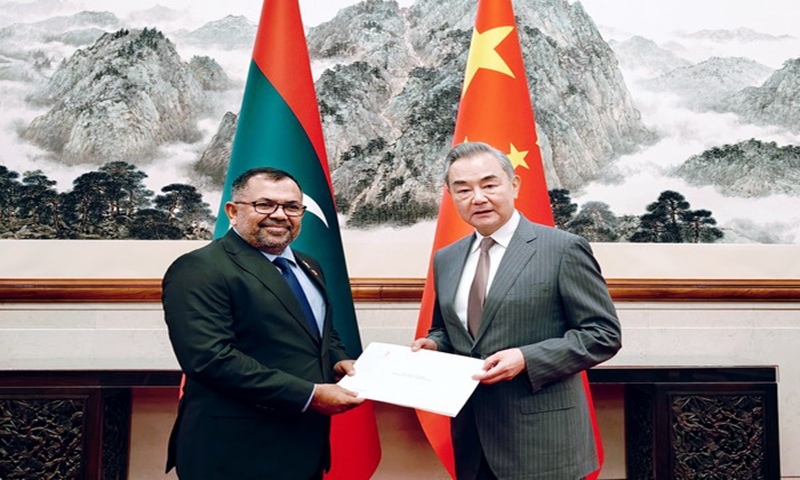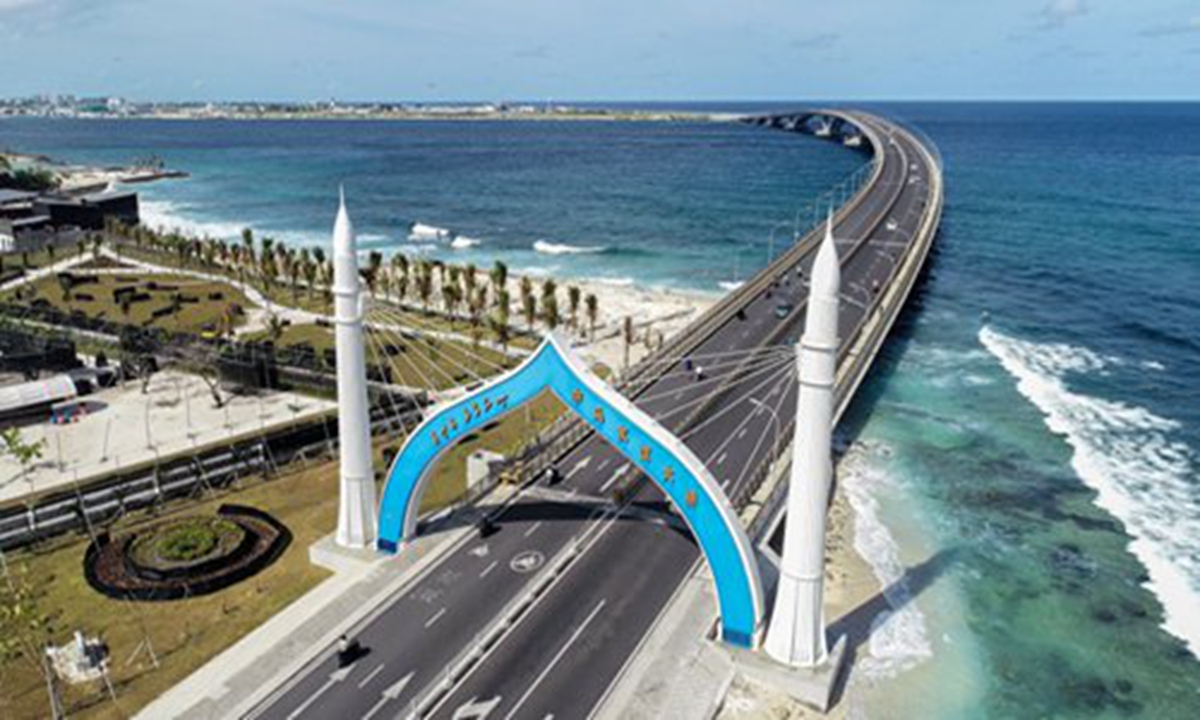Maldives thankful for substantial cooperation under China-proposed BRI, looking forward to expanding ties: envoy

Fazeel Najeeb, the Maldives Ambassador to China Photo: Yin Yeping/GT
The Maldives, an active partner of China's Belt and Road Initiative (BRI), has significantly benefited from infrastructure development, trade growth and other bilateral cooperation projects, and the nation is "grateful" for the support from the Chinese government, Fazeel Najeeb, the newly-appointed Maldives Ambassador to China, said in an exclusive interview with the Global Times, as this year marks the 10th anniversary of the Maldives' participation in the joint construction of the BRI.
Numerous BRI projects have already been completed and are operational in the Maldives. One landmark project is the China-Maldives Friendship Bridge, which the ambassador called a transformative project that greatly improves travel conditions between islands.
The bridge is the first cross-sea bridge in the Maldives built by a Chinese company - connecting Male, the Maldivian capital city, with neighboring Hulhule Island, enabling locals and tourists to travel between the two islands in five minutes.
The friendship bridge is just the epitome of China-Maldives close cooperation, which spans infrastructure, trade, and people-to-people exchanges.
Currently, both countries are speeding up the implementation of an important consensus reached by the leaders of the two countries, advancing projects like the municipal roads in Male and Velana in the Maldives, according to information from the Chinese Embassy in the Maldives.
Both sides are now actively expanding cooperation in tourism, agriculture, fisheries, trade, and investment.
The ambassador said: "We are benefiting from BRI cooperation and look forward to deepening our ties under the initiative," emphasizing the potential for expanding collaboration.
Free trade deal
A key avenue for enhancing bilateral economic ties is the free trade agreement (FTA) reached between the two countries, which is expected to be implemented soon, according to Fazeel.
China-Maldives FTA negotiations started in December 2015 and ended in September 2017. The agreement covers trade in goods, trade in services, investment, and economic and technical cooperation, according to China's Ministry of Commerce.
In 2023, their bilateral trade reached $758.33 million, representing a 75.8-percent year-on-year increase, data from China's General Administration of Customs showed.
The ambassador said that the bilateral economic and trade ties will be significantly strengthened under the FTA, "which has already been signed and is expected to take effect by the end of this year or early next year."
"I believe that with the imminent enactment of the FTA, we will see more Chinese enterprises doing business in the Maldives," he said.
Fazeel also noted that once the FTA takes effect, the volume of Chinese products entering the Maldives could significantly increase.
In addition to trade, Fazeel also mentioned tourism, a key pillar of people-to-people exchanges.
Since the beginning of this year, with the restoration and launch of multiple flight routes between the two countries, travel and cultural exchanges have become easier, resulting in a steady rise in the number of Chinese tourists visiting the Maldives.
According to the Maldives Embassy in Beijing, by the end of August this year, more than 200,000 Chinese tourists visited the Maldives, making China one of the largest sources of foreign tourists to the Maldives.
'Debt trap' rebutted
Like many strong relationships established under the BRI, close China-Maldives ties have faced unfriendly assaults from some Western media, alleging that China's BRI has created the so-called "debt trap" for the island nation and that China is "exerting influence" through the program.
The ambassador firmly rebutted these baseless as well as malicious accusations.
"We do not view it in that way… We see it as an extension of China's support for the development of the Maldives," Fazeel said, noting that it is the BRI that has greatly benefited local development in infrastructure, trade and many other fields.
Responding to the "debt trap" accusation, Fazeel said: "We are getting funds not only from China but other countries and international organizations… In fact, some countries currently owe more debt to others than we do to China."
Regarding claims about China imposing influence over the Maldives, the ambassador emphasized that "influence is a subjective term, and every country has some degree of influence on another, whether economically, financially, culturally, or traditionally."
"We are impressed by China's technological capabilities and economic strength... As the second-largest economy in the world and a leading technological innovator, China offers significant benefits to us," Fazeel noted.
The ambassador said: "We see nothing wrong with collaborating with any country that offers us trade and support. We are not concerned about criticisms - there will always be criticisms of various kinds."
Looking ahead, he stated that the Maldives will continue to work and cooperate with any country that extends a helping hand to the Maldives, emphasizing that "China is always at the forefront of that support."



